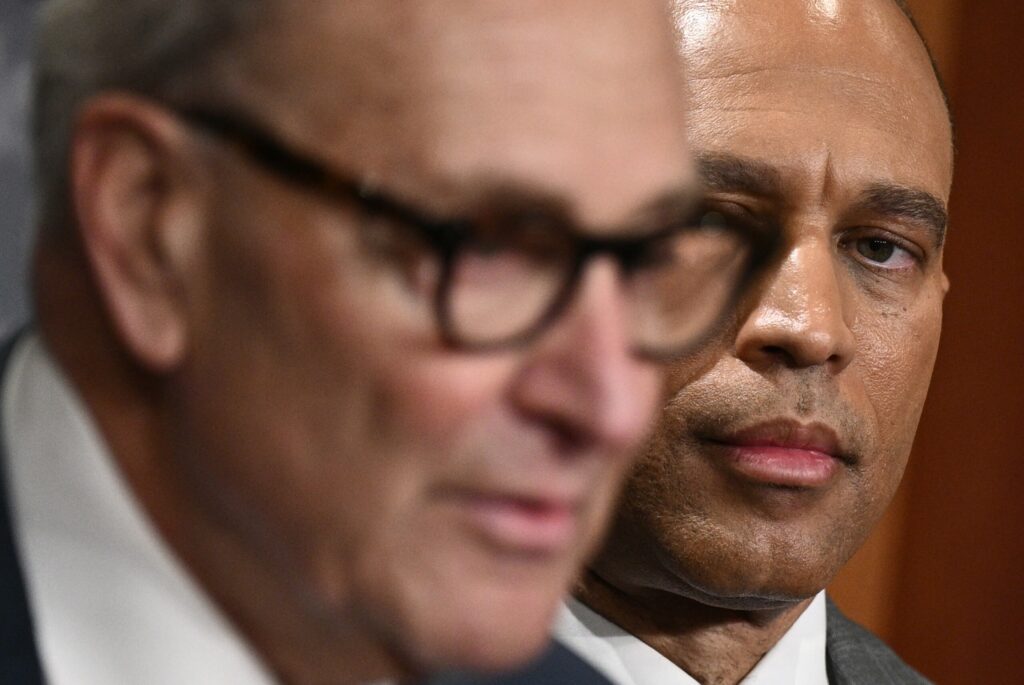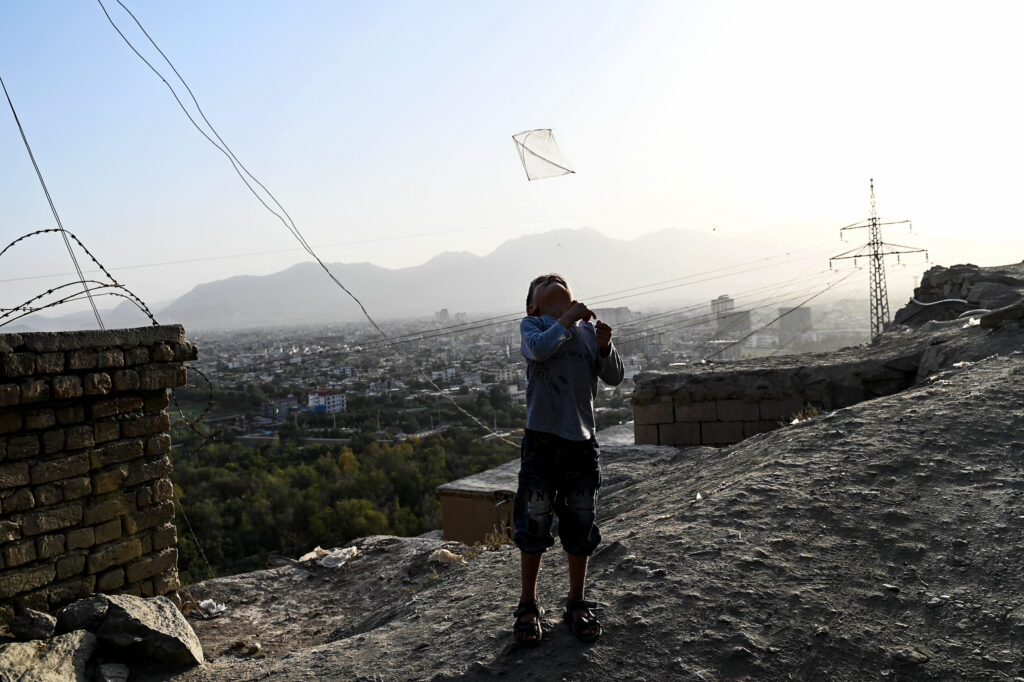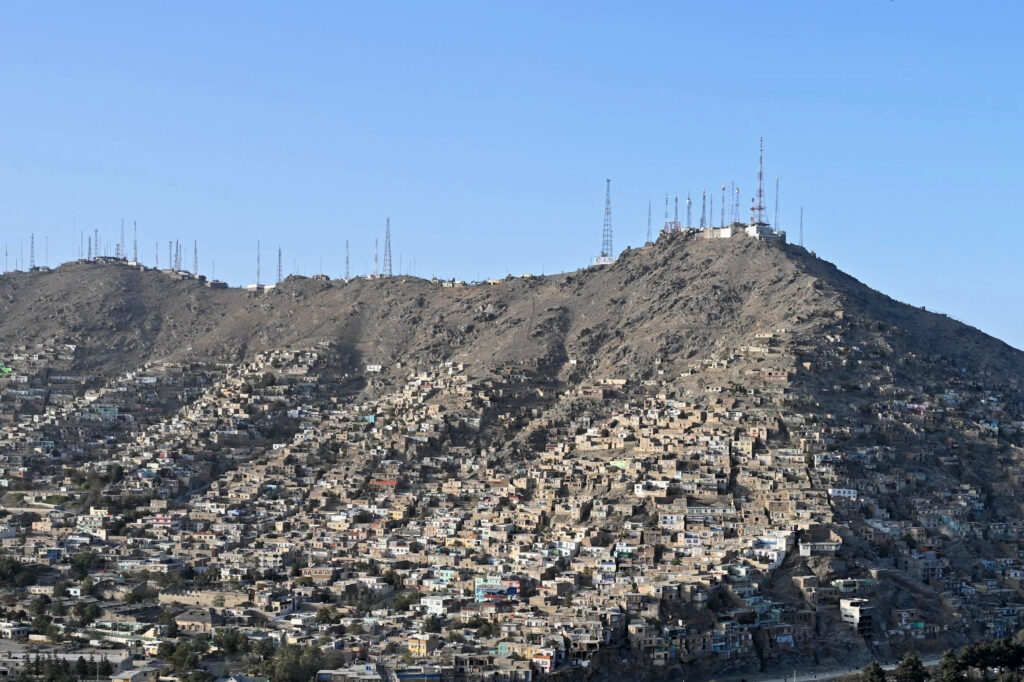Dow ends at record as US stocks shrug off shutdown risk
The Dow finished at a fresh record Tuesday as markets largely shrugged off the likelihood of a partial US government shutdown due to a stalemate on budget talks.Major US equity indices veered in and out of negative territory throughout the day before finishing in the black. The Dow Jones Industrial Average was up 0.2 percent at 46,397.89, a new record.Several federal government operations will freeze beginning at midnight Tuesday night if there is no breakthrough. Talks between congressional leaders and President Donald Trump concluded Monday without progress.”The market seems to be ignoring the fact that we’re looking at a potential shutdown,” said Art Hogan of B. Riley Wealth Management.Analysts say a shutdown will not significantly affect the US economy unless it is prolonged. While some activity would be curtailed, the expectation is that there would be a bounce when the government reopened.But a closure would delay the release of key economic data, including the September jobs report, which is supposed to come out Friday.”Usually, markets ignore shutdowns — most last only a few days and investors seem to take a long-term view of the situation, and the short duration of most incidents has little impact on company profits,” said Neil Wilson, investor strategist at Saxo.But “it could be different this time,” Wilson warned. “Deep political divisions could see this drag on. A longer shutdown could have serious consequences for stocks.”He pointed to the White House threatening mass firings, while recent changes to economic policy added to uncertainty and raised the prospect of a potential recession.The latest Dow record extends a heady period for US equities that has seen all three major indices post new records during the third quarter, which ended with Monday’s session.Analysts have pointed to bullishness around artificial intelligence and optimism around US Federal Reserve interest rate cuts as among the factors driving equities higher.However, there has been some weakening in economic data. The Conference Board’s consumer confidence index slipped 3.6 points to 94.2 in September. The figure, the lowest since April, reflects increased worries about inflation.- Gold price surges -Gold, a safe haven investment in times of uncertainty, reached yet another peak above $3,870 an ounce before retreating a bit.Speculation is growing that it could soon hit $4,000, having piled on almost 50 percent since the turn of the year.”The longer-term case is still supportive of further increases in the gold price,” said Kathleen Brooks, research director at XTB trading platform.”Dollar weakness, rising inflation expectations and the prospect of Fed rate cuts are all driving this gold rally.”Oil prices dropped further on fears of a glut amid talk of OPEC+ hiking output again when officials meet Sunday.Among individual companies, Pfizer surged 6.8 percent after the drugmaker was granted a three-year reprieve on planned tariffs as it vowed to voluntarily lower the prices of unspecified drugs for US purchase.CEO Albert Bourla touted the agreement at a White House appearance with President Donald Trump.- Key figures at around 2020 GMT -New York – Dow: UP 0.2 percent at 46,397.89 pointsNew York – S&P 500: UP 0.4 percent at 6,688.46New York – Nasdaq: UP 0.3 percent at 22,660.01London – FTSE 100: UP 0.5 percent at 9,350.43 (close)Paris – CAC 40: UP 0.2 percent at 7,895.94 (close)Frankfurt – DAX: UP 0.6 percent at 23,880.72 (close)Tokyo – Nikkei 225: DOWN 0.3 percent at 44,932.63 (close)Hong Kong – Hang Seng Index: UP 0.9 percent at 26,855.56 (close)Shanghai – Composite: UP 0.5 percent at 3,882.78 (close)Euro/dollar: UP at $1.1739 from $1.1727 on MondayPound/dollar: UP at $1.3448 from $1.3429Dollar/yen: DOWN at 147.86 yen from 148.59 yenEuro/pound: DOWN at 87.29 pence from 87.32 penceBrent North Sea Crude: DOWN 1.4 percent at $67.02 per barrelWest Texas Intermediate: DOWN 1.7 percent at $62.37 per barrel



